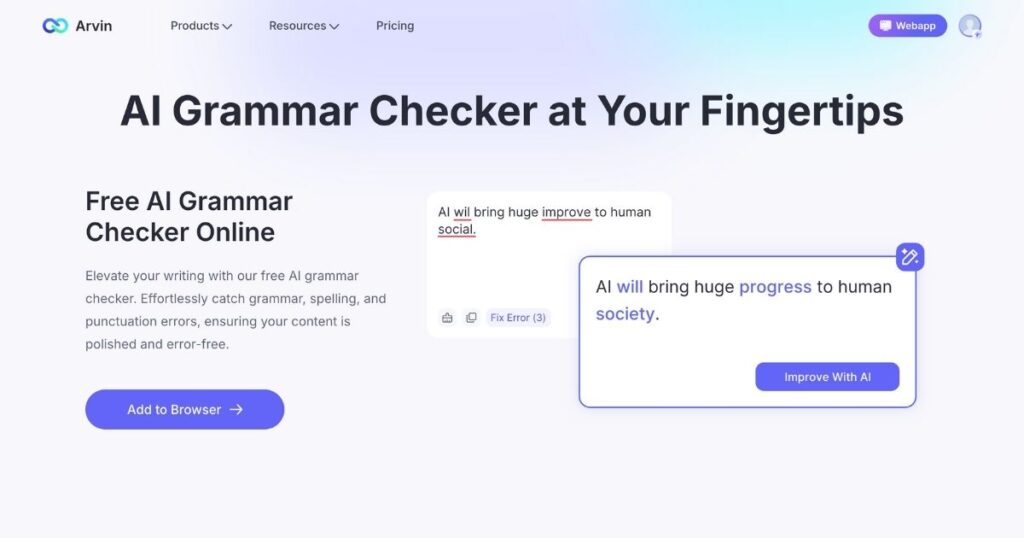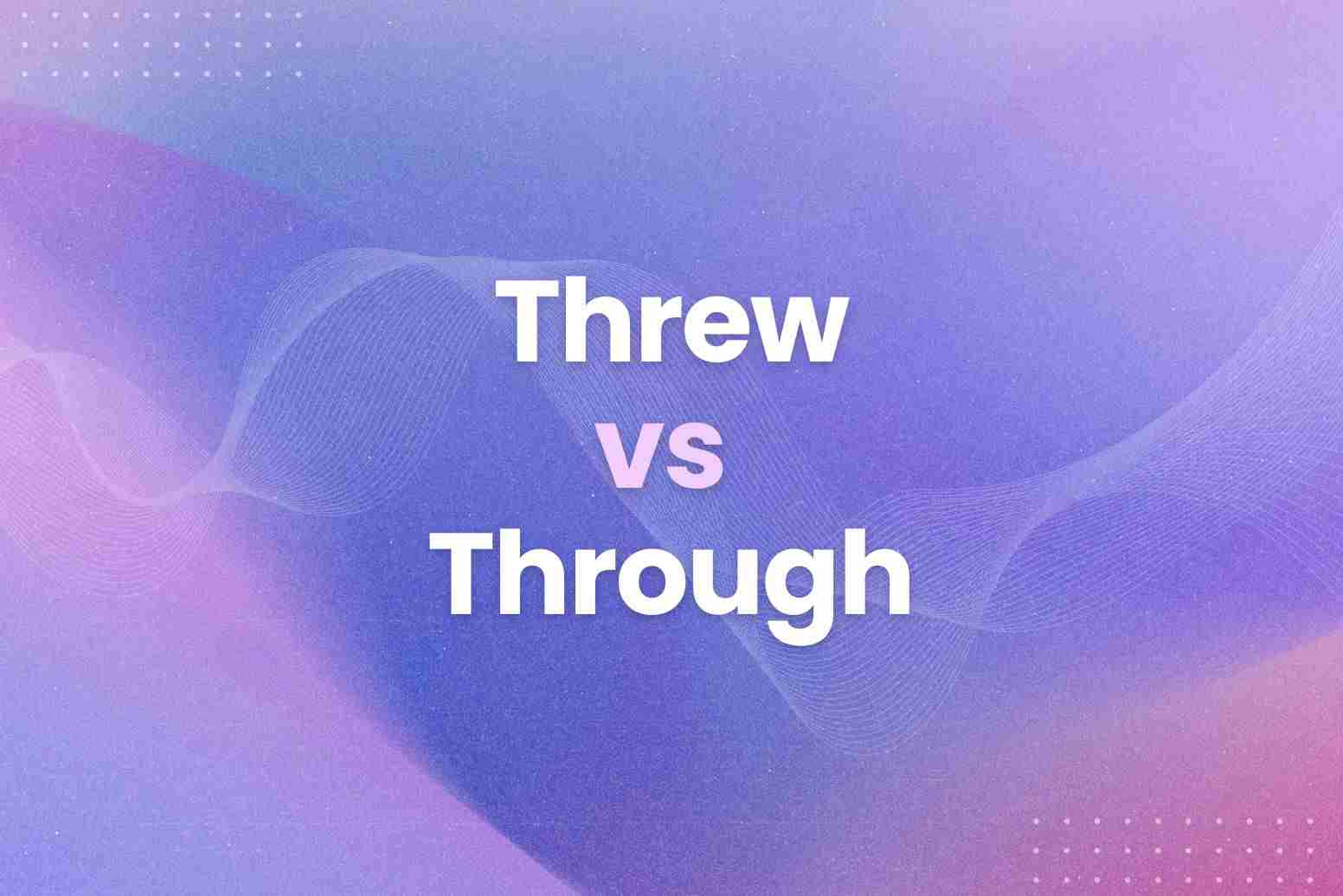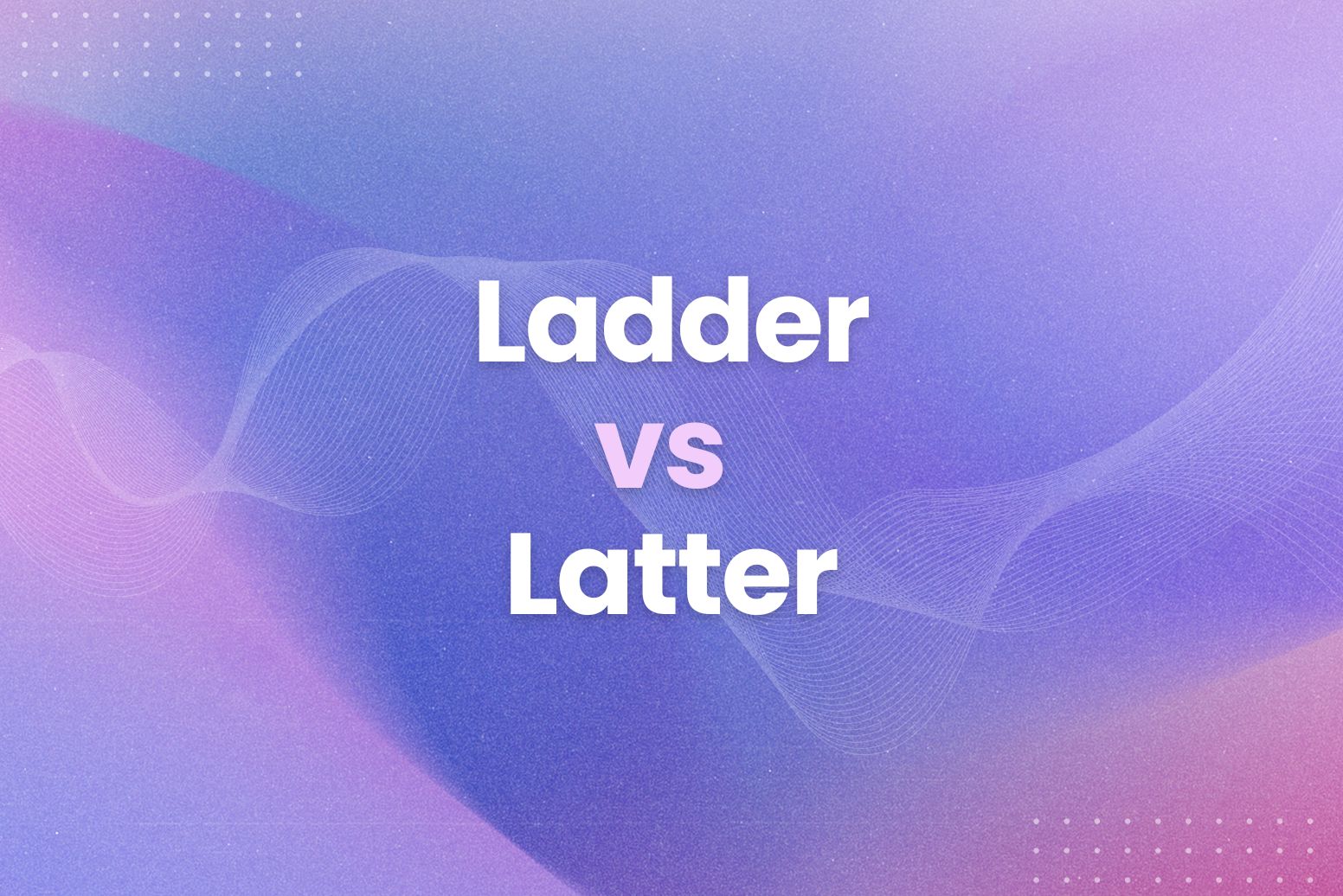Ever accidentally used “threw” when you meant “through”? You’re not the only one. These two words trip up even seasoned writers. But don’t worry. We’ve got you covered. In this quick guide, we’ll clear up the confusion between “threw” and “through” once and for all.
Here’s what we’ll cover:
- Firstly, the simple difference between “threw” and “through”
- Secondly, real-world examples of each word in action
- Finally, easy tricks to remember which is which
Want to write with more confidence? Check out Arvin, the AI assistant that can help you with grammar, writing, and more. It’s like having a personal editor right in your browser.
Threw vs. Through: What’s the Difference?
Let’s get this confusion sorted out. “Threw” and “through” sound alike, but they have completely different meanings.
- Threw: This is the past tense of the verb “throw.” It means to propel something with force, like, “She threw the ball.”
- Through: This is a preposition (or sometimes an adjective or adverb). It usually means moving in one side and out of the other. For instance, “He walked through the door.” It can also mean from beginning to end. For example, “I read the book all the way through.”
See? Not so tricky after all. But just to be sure you’ve got it, let’s look at some examples.
Need an extra hand with prepositions? Arvin can help you identify them and make sure you’re using them correctly.
Examples to Clear Things Up
Sometimes, the best way to learn is by seeing words in action. Therefore, let’s check out some examples of how we use “threw” and “through” in everyday sentences:
Threw:
- Firstly, “He threw a surprise party for his best friend.” (This means he organized a party that was unexpected.)
- Similarly, “The pitcher threw a fastball.” (The pitcher propelled the ball with speed.)
- She threw away the old newspaper. (She tossed the newspaper in the trash.)
- The child threw a tantrum in the toy store. (The child had an outburst of anger.)
- Finally, he threw caution to the wind and quit his job. (He acted impulsively and took a risk.)
Through:
- Firstly, “The train went through the tunnel.” (The train traveled from one end of the tunnel to the other.)
- Likewise, “We drove through the countryside.” (We traveled across the countryside.)
- He finished the project through sheer determination. (He completed the project by being determined.)
- She learned about the job opening through a friend. (She received the information via a friend.)
- Lastly, the company went through a major restructuring. (The company experienced a significant change.))
Notice how “threw” always involves some kind of action, while “through” often describes a passage or a means to an end.
Speaking of getting things done, Arvin can help you power through your writing tasks. Need to summarize a long article? Arvin can do that for you in seconds. Want to rephrase a sentence? Arvin’s got your back.
Tricks to Remember “Threw” vs. “Through”
Want to remember the difference between these tricky words without breaking a sweat? Here are a few handy tricks:
- “Threw” has “throw” in it: This one’s pretty straightforward. “Threw” is the past tense of “throw.” So, if you’re talking about the act of throwing something, use “threw.”
- “Through” rhymes with “zoo”: Imagine walking through the zoo. This might help you remember that “through” often involves going from one point to another.
- Use Arvin’s grammar checker: We might be a little biased, but Arvin can be a lifesaver when you’re unsure about which word to use. Certainly, it’ll catch those pesky grammar errors and even suggest corrections.

With these simple tricks and Arvin by your side, you’ll be using “threw” and “through” like a pro in no time.
Time for a Pop Quiz!
Do you think you’ve got “threw” and “through” figured out? Let’s put your knowledge to the test with a quick quiz. Choose the correct word to complete each sentence:
- He _______ the ball over the fence.
- We walked _______ the park to get to the museum.
- She _______ away the old clothes she didn’t need anymore.
- The sunlight streamed _______ the window.
- Even though it was tough, he pushed _______ the challenge.
Answers:
- threw
- through
- threw
- through
- through
How did you do? If you aced it, congrats! If not, however, no worries. Just revisit the examples above and you’ll be a pro in no time.
Never Confuse Threw vs Through Again
That’s it. You’ve mastered the difference between threw vs through. No more grammar slip-ups for you. Moreover, just to recap, remember these key points:
- “Threw” is the past tense of “throw.”
- “Through” usually involves going from one point to another or from beginning to end.
Want to make sure your writing is always error-free? Arvin can give you instant feedback on your grammar and word choice, so you can write with confidence. Give it a try and see the difference.
FAQs
It depends on what you’re trying to say. Specifically, “threw” is the past tense of “throw”, so you use it when talking about something being tossed or hurled. In contrast, “through” usually describes going from one point to another (like through a tunnel) or something lasting from beginning to end.
You actually wouldn’t use “through” and “threw” together in the same sentence very often. They have totally different meanings. However, you could say something like, “He threw the ball through the hoop,” where each word has its own job.
“Throw” is about launching something, while “though” is a conjunction that means “however” or “despite this.” For example, “I’ll go to the party, though I’m feeling tired.”
It’s almost always “running through.” For instance, running through a park or through a maze. “Threw” is only for when you’re throwing something, like, “He threw the football.” To sum up, “threw” and “through” are easy to confuse, but with a little practice, you’ll be using them like a pro.






